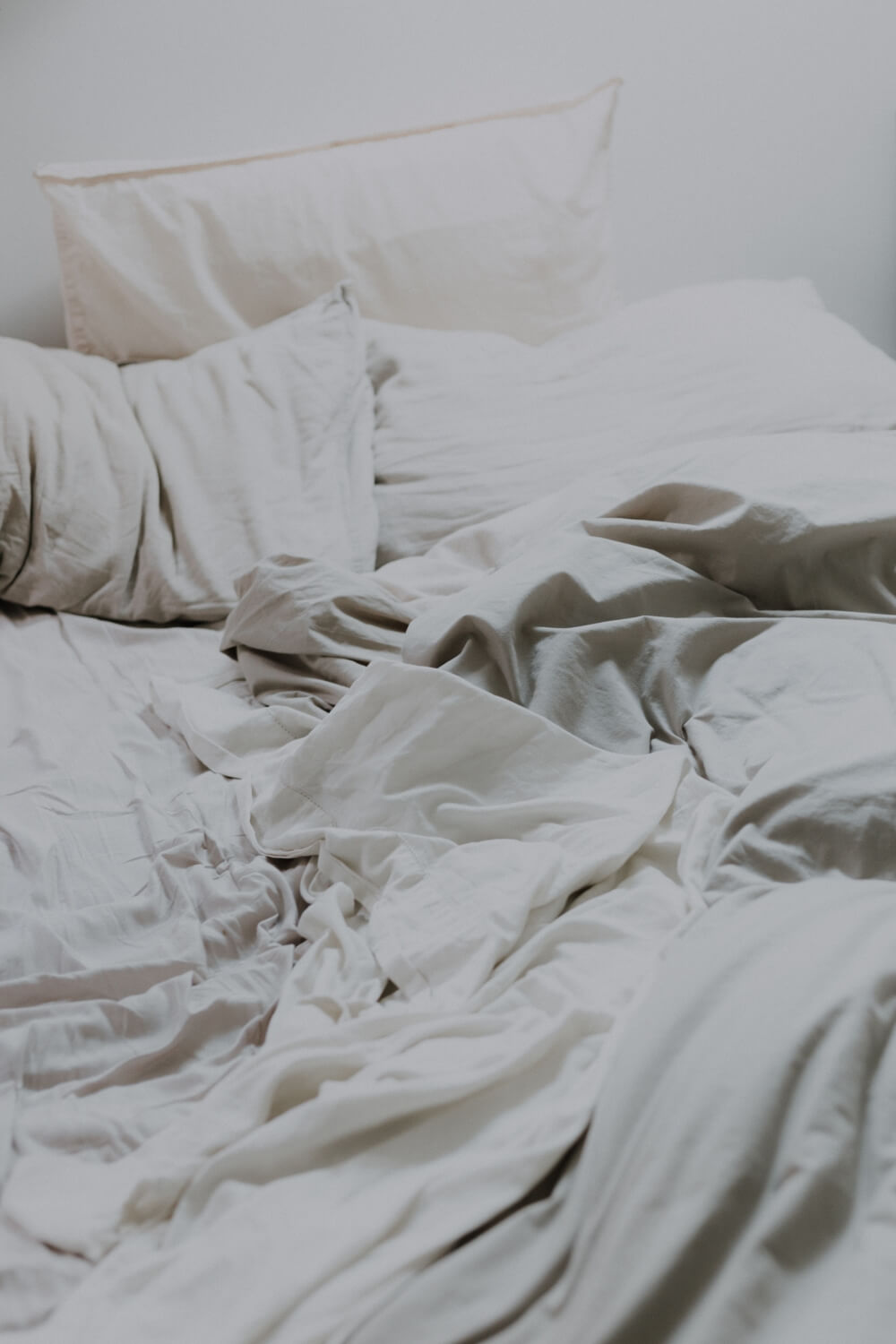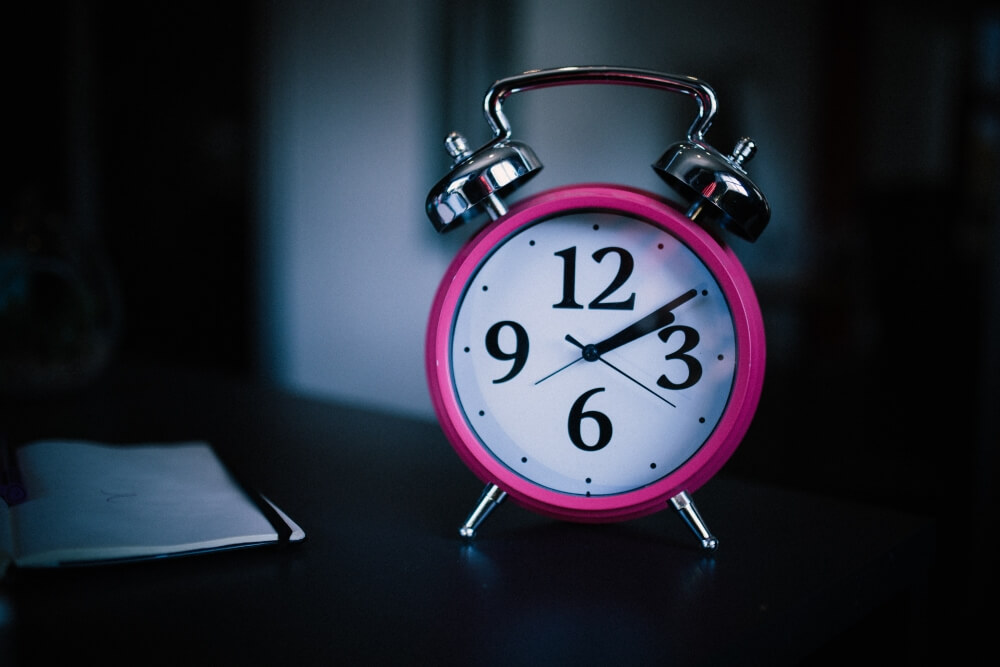How to sleep well? Here are 5 simple tips to help you sleep better and more soundly in this article.
Context: Sleep: half of our lives

We spend half our lives sleeping. As a result, it's our main and, for some, favorite activity.
What's more, lack of sleep has undoubtedly harmful long-term effects: increased anxiety, increased risk of psychological overload (depression, burnout, etc.) and increased risk of developing certain diseases (Alzheimer's). Not to mention the risk of accidents due to fatigue!
Here are a few tips on how to get a good night's sleep, enjoy effective, restorative sleep and simply be at your best every day. And your health will thank you [source] !
Tip 1: Get enough sleep
It sounds logical, but how much sleep do you really need? In fact, this evolves over time. A child aged 1-3 will need between 10 and 18 hours sleep a day, while a senior citizen will need between 5 and 9 hours.
For an adult, you should sleep between 6 and 10 hours, which is a pretty wide range: it's up to you to choose the length of time that suits you.
Personally, I always get 8 hours' sleep and take great care to get to bed before 11pm, with exceptions at weekends.
If I leave this rhythm, I soon notice that I feel more tired, even if I continue to sleep for 8 hours.
2nd tip for a good night's sleep: Set your own sleep rhythm
You've defined your appropriate sleep duration, excellent. Now let's talk about rhythm: a regular rhythm is indeed essential. Going to bed and getting up at roughly the same time every day helps to "program" your body and mind, and promotes rapid sleep onset.
What's more, it's important that your rhythm is in phase with natural light. A 4 a.m.->noon schedule is therefore to be avoided.

3rd tip for a good night's sleep: Arrange your bedding
Is your bed too hard? Do you sleep with your partner and wake up every time he or she moves?
Investing in new bedding can be worthwhile, especially since, as mentioned in the introduction, sleeping is our main activity.
Bedding has come a long way in the last 20 years, with the transition from spring to memory foam mattresses. Now you can find every possible hardness at reasonable prices. Take a trip to your nearest furniture store and give it a try.
Just changing your pillow for a memory foam cushion can be a good first step to trying this trick!
Having switched from a conventional pillow to an ergonomic memory foam pillow, I can guarantee that it changes the way you sleep. It even relieves back tension!

Tip 4 for a good night's sleep: Furnish your environment
An environment that's too dry or too hot will have a negative impact on your sleep. According to several studies, the ideal temperature for a good night's sleep is between 16° and 18°. This is rather cold, considering that the average temperature in a home is between 20° and 22°.
This temperature of between 16° and 18° promotes sleep, breathing and natural body regulation.
The ideal ambient humidity level for a bedroom is between 50 and 55%. For a child's bedroom, you should aim for between 30 and 55%. You can easily find a thermometer-hydrometer in your local store for less than 15.-/euros.
All you have to do is manage the temperature and humidity levels by leaving your windows open for varying lengths of time.
At home, I went from 22° to 18°. It felt "chilly" at first, but I actually fall asleep much faster.

Tip 5 for a good night's sleep: Wake up like a flower
Normally, when we've had enough sleep, we wake up "like a flower" at the end of a sleep cycle. A sleep cycle lasts around 1h30. A normal night therefore consists of 4 or 5 complete sleep cycles.
The problem with our tasks, work and so on is that we use alarm clocks that don't respect these sleep cycles. These alarm clocks go off at the specified time, whether we're at the end of a cycle or in the middle of one.
That's why, when using such an alarm, the waking phase is very difficult, with only one desire: to get back into that deep cycle that feels so good! In fact, the word "alarm" makes us think of an emergency. We're sleeping peacefully, only to be woken up by an emergency "alarm".
A simple solution to this is to use an alarm clock that respects our sleep cycles. These alarm clocks analyze our sleep through the noises we make and wake us up in a given interval at the most appropriate moment.
You can easily find such alarm clocks as apps to install directly on your smartphone.
Personally, I've been using SleepCycle Free and really good! It really improved my sleep.

Bonus sleep tip: Write down your dreams
Finally, I'd like to finish this little article by giving you one last solid-gold tip!
Do you have nightmares? Do you remember your dreams? Are you able to live your dreams?
No ? OpenSynaps suggests you fill in a dream journal in your personal diary. This dream journal has several aims:
- Allow you to analyze your dreams and see how they evolve over time.
- Work on your dream memory and you'll see that the exercise of remembering and writing, difficult at first, will become easier and easier.
- In the case of nightmares, unravel the connected elements: phobias, underlying anxieties, stress. You'll then be able to work on these elements and reduce related nightmares.
- And lastly, you'll be able to have lucid dreams. Lucid dreams are dreams in which you know you're dreaming. So you can interact with your dream and go wherever you want.
Fill your dream journal without moderation.

In conclusion
With these 5 tips for good sleep, you'll be able to greatly improve your quality of sleep. Implement these tips over the coming weeks and you'll see your sleep improve dramatically.
Do you have any other easy-to-follow sleep tips? Send them to me and I'll add them to this article.
Also discover our hypnosis program dedicated to sleep here : https://opensynaps.com/hypnose-sommeil/
An excellent day! 😀














































